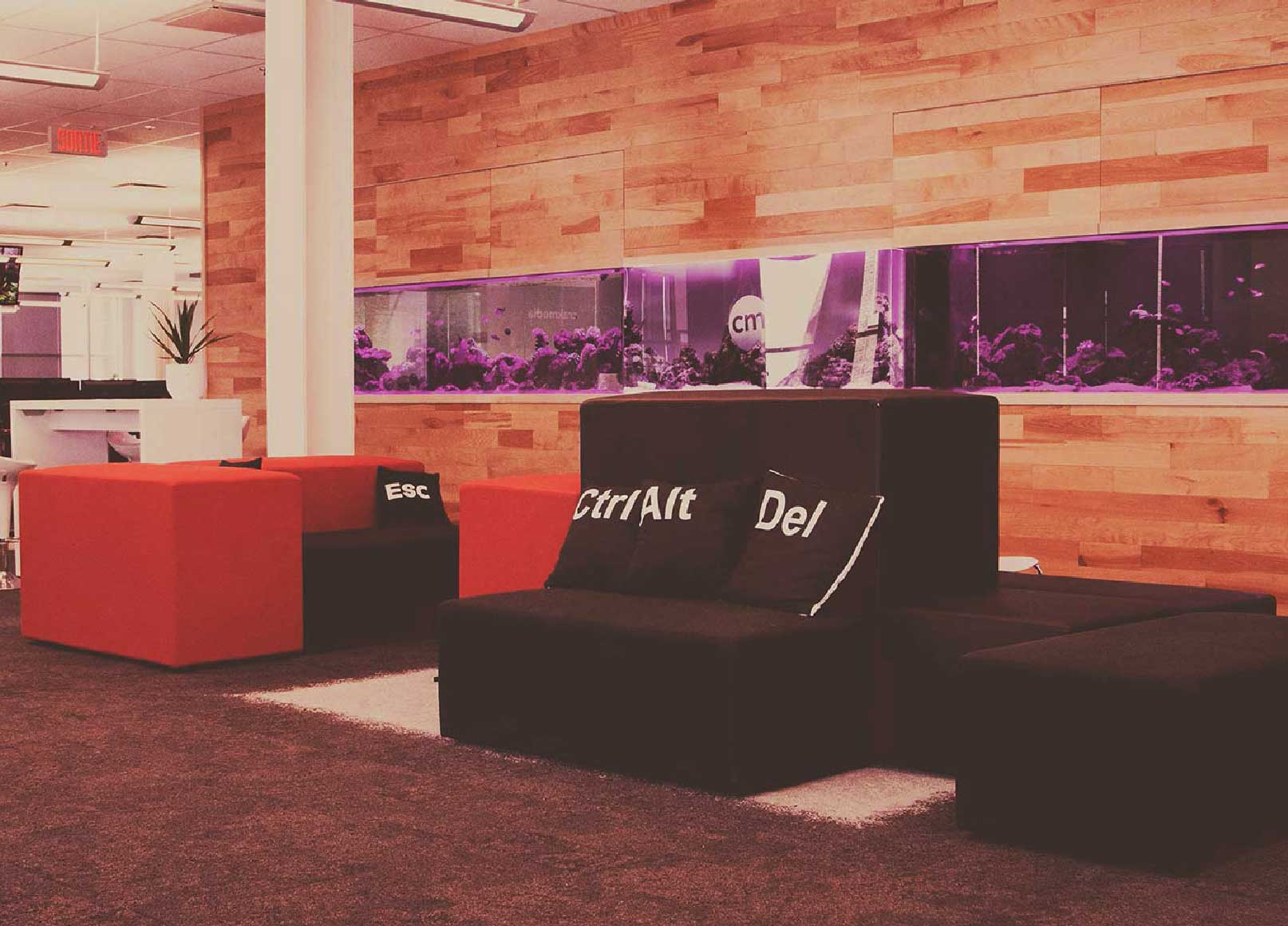Keep your job for a long time : it could be the best decision for you in 2025
While job openings seemed to be overflowing in 2022, the job market is no longer what it was at the end of the pandemic and 2025’s context is rather different. Social networks are still full of posts presenting positions to be filled on a silver platter or praise the virtues of “job hopping”, the practice of changing jobs every 18 to 24 months to improve one’s conditions. But is it always a good idea or should we favor professional loyalty?
The post-pandemic windfall of jobs where companies were scrambling for talent has given way to a slightly more balanced, even a little saturated, market, especially for professional jobs. In this context, more and more workers may feel that they have fewer choices and that they are somehow “stuck” with no other option but to remain loyal to their current employer. A decision that, far from being a lack of ambition or a condemnation, can be highly strategic and beneficial to your career. Here are 5 good reasons to keep your job as long as possible.
1.Valuable job security in an uncertain market
Economic and political uncertainty in Canadian markets is not only weighing on our wallet and pension funds. With the reduction in the number of available positions and the budgetary prudence of many companies, the job market has become much calmer, especially for professional jobs. Keeping your job becomes an undeniable advantage: income stability, continuity of benefits, and above all, less stress related to looking for a new job.
We often underestimate the value of continuity and stability when we are in a period where we are looking for a change in our routine. It is important to ask yourself the right questions: Do I really want to change jobs or am I only experiencing a period of temporary boredom? Do I need to change jobs to improve my quality of life? Am I willingto accept a loss of pay or benefits?
If the answer to these questions is no, then changing jobs is probably not the best solution. In times of economic downturn, new employees are unfortunately the most at risk in the event of cutbacks. Conversely, long-term employees often benefit from better protection, as their contribution is well known and their expertise has become difficult to replace.
Don’t underestimate an employer’s willingness to avoid a long and painful hiring process to replace an employee who is actually just looking for a new challenge or an improvement in their working conditions. Have an open discussion with your manager and use your weekly 1:1 to talk about your medium- and long-term professional goals.

2.Professional benefits that add up over time
The majority of employers reward their long-standing employees with benefits that gradually increase over the years. Companies often reward loyalty with benefits that increase over the years. Extra vacation, enhanced pension plans, extra bonuses, recognition programs… These are all benefits that are generally not available as soon as you are hired.
More vacation time to unwind
In Quebec, the CNESST sets the minimum annual vacation that all employers must offer their employees:
- Less than one year of service: 1 day per month of continuous service for up to 2 weeks (4% allowance)
- One to three years of service: 2 weeks (4% allowance)
- Three years of service or more: 3 weeks (6% allowance)
However, many employers offer a more generous vacation plan. This is the case at Crakmedia: new employees start at 3 weeks of vacation (6%) and get an additional week of vacation for every three years of service up to a maximum of 5 weeks per year. In addition, 2 to 5 floating holidays are acquired gradually during the first 5 years of service.
Planning for retirement
Employer-sponsored pension plans often establish a minimum length of service before employer contributions are vested in the employee. This period can be up to a maximum of two years according to the rules of the Canada Revenue Agency. An employee who leaves his or her employment before the end of this period therefore loses all of his or her employer’s contributions as well as the potential interest that this amount would have accrued until your retirement.
These profits represent a significant financial value that is often forgotten when calculating the value of a new opportunity. We receive much more from our employer than our basic salary. A wage increase does not necessarily translate into an increase in our quality of life when we take into account the loss of certain invisible benefits.
3.A network to rebuild in an unfamiliar environment
Time allows you to build a solid network and relational capital within the company. Trust, recognition, direct access to management, influence on decisions… These informal benefits, often invisible and unquantifiable, become major career levers.
A recognized and appreciated employee often becomes a reference, a mentor and a resource person essential to the proper functioning of teams. This notoriety is difficult to achieve when you change employers regularly. It is through the years and shared projects that a real influence is created.
Changing jobs also carries a risk of getting stuck in an unhealthy environment, either professionally or mentally. Psychological safety at work is of paramount importance in predicting a person’s well-being, integration (or not) into his or her environment, his or her commitment and performance.
If you’re lucky enough to have an employer who listens to your needs, it can weigh a lot more than you think when you reconsider your professional future. Before you take the plunge into the unknown, consider the benefit of prioritizing a healthy environment. Sometimes it’s more important to invest in your mental well-being rather than choosing more superficial benefits over your happiness.
4.Opportunities for internal development
Contrary to some popular beliefs, it is possible to progress without leaving your company. We have already discussed the subject of internal mobility in the article New career, same employer. High-performing organizations promote this type of mobility, whether through promotions (vertical mobility) or role changes (horizontal mobility).
At Crakmedia, for example, we regularly see employees change departments and we have even had one or two cases of complete reorientation with a return to school… without the person even leaving the company.
The majority of roles have a career path of their own, starting with an entry-level role and progressing to increasingly specialized roles and sometimes to management positions.
The cost of a departure
The high cost of employee turnover is also pushing many companies to invest heavily in the development of their internal talent rather than constantly recruiting externally. Hiring someone or replacing a departing employee can cost nearly 20% of their annual salary, and the associated direct and indirect financial losses range from 30% to 400%: lost productivity, overtime, hiring temporary workers, contracting, external recruiters, initial training, onboarding, etc.
5.Solidify your voice and power of influence
Gaining seniority has more than one advantage. One of them is being able to build a professional reputation that will propel you through the ranks of your career ambitions within your current company and beyond when you actually have to change employers to achieve your goals, for example if you are aiming for senior management positions. The latter rarely open up to the private sector and people in these positions tend to stay in their jobs for a very long time, sometimes justifying a change of employer to access them.
Every company has its own systems, processes, and culture. Over the years, employees develop a very fine and contextual expertise that allows them to be more efficient, anticipate needs and contribute strategically to objectives. This expertise is not necessarily easily transferable to a new employer and it becomes somewhat “lost”. This is especially true in certain areas where companies are so specialized that they are ultimately the only ones in their niche in a given region.
This very concrete knowledge of the organization is invaluable for employers, but also for employees. We’ve all been the new kid on the block at one time or another and we know how long it takes to feel comfortable and competent in a new role. The first year is very often spent entirely on the acquisition of company-specific knowledge. We are less autonomous and we have less self-confidence, which makes it difficult to take initiatives or identify solutions to issues that we do not understand 100%. Long-time employees are also better able to identify opportunities for improvement or innovation because they understand the company’s global challenges.
Therein lies the benefit of investing in a long-term job: as the unknown dissipates, your influence and trust increases, allowing you to make an impact on the company and have much greater personal satisfaction. Are you overflowing with ambition? Invest your energy in sharing your expertise and position yourself as invaluable resources for the company.

Professional loyalty = winning strategy?
In 2025, staying in office for a long time is no longer a sign of conformism or lack of dynamism. It is a strategic choice, a long-term investment in one’s career, stability and well-being. Professional relationships, psychological safety, lost opportunity cost, company-specific expertise, self-confidence, job stability and benefits, accumulation of vacation with seniority are all variables that have great value, sometimes more than a salary increase.
Before you think about leaving, ask yourself: have I really done the trick? Does my company offer opportunitiesfor growth? Can I contribute in other ways, elsewhere in the organization?
Sometimes the change you’re looking for is closer than you think. And you, what is your reason for keeping your job as long as possible?
Are you looking for a new employer where you can invest in your career for several years? Crakmedia wants your talent: crakmedia.wd3.myworkdayjobs.com/
____
Continue reading with these articles on the same topic:

Share






